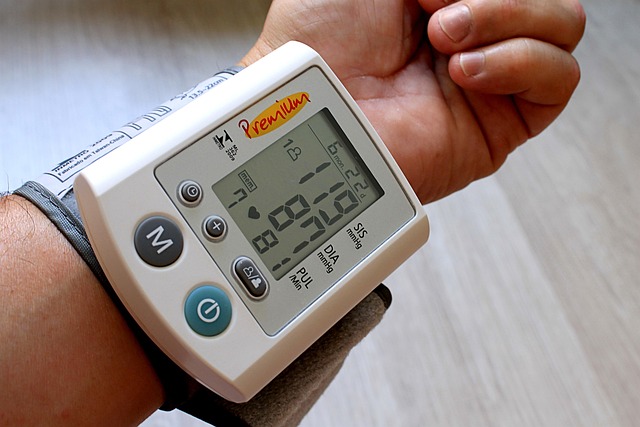Your Body Mass Index (BMI) is a simple way to estimate whether your weight is in a healthy range for your height. This calculator helps you quickly find your BMI and shows which category you fall into—underweight, normal weight, overweight, or obesity.
Enter your height and weight, select Metric (kg, cm) or US customary (lb, ft+in), then click Calculate. You’ll also see a suggested ideal weight range for your height.
Body Mass Index (BMI) Calculator
Understanding your bmi results: what the numbers really mean
Your Body Mass Index (BMI) is a quick way to check if your weight is within a healthy range for your height. By entering just a couple of numbers in the calculator above, you get an estimate that places you into a category: underweight, normal weight, overweight, or obesity. While it might look like just a number, your BMI can give you valuable insight into your health and how your body is doing right now. Think of it as a gentle guide that helps you understand whether you’re on track or whether you might want to make some changes.
The history of bmi
The concept of BMI was first introduced in the 19th century by Belgian mathematician Adolphe Quetelet. He created the formula to measure the “average man” and study population health trends, not individual well-being. Decades later, health organizations adopted BMI as a quick and affordable screening tool. Today, BMI remains one of the most common ways to estimate weight status, even though it has limitations.
Why bmi matters for your health
Carrying extra weight puts stress on your body: your heart works harder, your joints take more pressure, and your risk of chronic illnesses increases. On the other hand, being underweight can also be a concern, as it may mean you’re not getting enough nutrients to keep your energy up and your body strong. Keeping your BMI within the recommended range can support a healthier, longer, and more active life.
Bmi categories explained simply
-
Underweight (BMI under 18.5): this may mean your body isn’t getting the energy and nutrients it needs. You might feel tired more often or get sick more easily.
-
Normal weight (BMI 18.5–24.9): this is considered the “healthy range” for most people. It usually means your weight and height are well balanced.
-
Overweight (BMI 25–29.9): at this level, there’s a higher chance of health issues like diabetes or high blood pressure, but even small lifestyle changes can make a big difference.
-
Obesity (BMI 30 and above): a higher BMI increases the risk of serious conditions like heart disease. If you’re in this range, it doesn’t mean you’re unhealthy right now, but it’s a sign to take action with professional support.
The limitations of bmi
It’s important to remember that BMI doesn’t tell the whole story. It doesn’t know how much of your weight is muscle versus fat. For example, athletes often have a high BMI even though they’re very healthy. Similarly, older adults might have a normal BMI but still carry too much body fat. BMI also doesn’t consider factors like age, gender, lifestyle, or genetics. So, think of your BMI result as a starting point — not the final answer.
Other measurements you can use alongside bmi
-
Waist circumference: excess fat around the abdomen is strongly linked to higher health risks.
-
Waist-to-hip ratio: shows how fat is distributed across the body.
-
Body fat percentage: measured by scales or scans, it’s more precise than BMI.
-
Fitness indicators: stamina, strength, and resting heart rate often reflect overall health better than BMI alone.
Practical tips for keeping your bmi in a healthy range
-
Eat balanced meals: focus on vegetables, fruits, lean proteins, whole grains, and healthy fats.
-
Stay active: even simple activities like walking, cycling, or dancing can help maintain a healthy weight.
-
Build strength: lifting weights or doing bodyweight exercises increases muscle mass, which boosts metabolism.
-
Get enough sleep: poor sleep can affect hormones that regulate hunger and weight.
-
Stay hydrated: sometimes thirst can be mistaken for hunger.
-
Manage stress: high stress can lead to overeating or unhealthy choices, so finding ways to relax matters.
Tips for losing weight if your bmi is high
-
Create a calorie deficit: aim to eat slightly fewer calories than you burn each day. Even a 500-calorie daily deficit can lead to about 0.5 kg (1 lb) of weight loss per week.
-
Focus on whole foods: replace processed snacks with fruits, vegetables, lean meats, and whole grains.
-
Move more during the day: take stairs instead of elevators, park farther away, or go for short walks during breaks.
-
Avoid sugary drinks: sodas, energy drinks, and sweetened coffees add unnecessary calories.
-
Practice mindful eating: eat slowly, avoid distractions like TV, and listen to your body’s hunger signals.
-
Set realistic goals: instead of aiming to lose a large amount of weight quickly, focus on small, steady progress.
-
Get support: working with a friend, joining a group, or consulting a nutritionist can help keep you motivated.
Tips for gaining weight if your bmi is low
-
Increase calories gradually: add 300–500 extra calories per day through healthy foods.
-
Eat more frequently: instead of three big meals, try five to six smaller meals throughout the day.
-
Choose nutrient-rich foods: nuts, seeds, avocados, whole milk, cheese, lean meats, and fish are excellent options.
-
Add healthy snacks: smoothies, yogurt, trail mix, and peanut butter can boost calorie intake.
-
Include strength training: building muscle helps you gain weight in a healthy way rather than just adding fat.
-
Avoid empty calories: don’t rely on junk food or excessive sugar to gain weight — it may increase health risks.
-
Track progress: monitor your weight and energy levels weekly to ensure you’re gaining at a steady pace.
Everyday life examples
Imagine two people: one works at a desk all day and rarely moves, the other takes daily walks, eats vegetables, and stays active. Even if their BMI numbers are the same, their actual health could be very different. This is why BMI should be combined with good habits, not seen as the only measure of health.
The health risks linked to a high bmi
-
Type 2 diabetes: excess weight makes it harder for the body to control blood sugar.
-
Heart disease: higher BMI is linked to high cholesterol, hypertension, and blocked arteries.
-
Stroke: the risk rises as BMI increases.
-
Sleep apnea: carrying weight around the neck and chest can affect breathing during sleep.
-
Joint pain: knees, hips, and lower back often suffer from extra body weight.
-
Certain cancers: obesity is associated with increased risks of several cancer types.
Frequently asked questions about bmi
Is BMI the same for men and women?
Yes, the formula is the same, but women naturally carry more body fat than men.
Does age affect BMI results?
Yes, older adults often have higher body fat at the same BMI compared to younger people.
Can kids and teenagers use this BMI calculator?
No. For children and teens, BMI is measured differently, using age- and sex-specific charts.
What if my BMI is high but I feel healthy?
That’s possible, especially if you’re muscular. In that case, look at other measures too, like waist size or body fat percentage.
How do I lower my BMI safely?
Gradual changes are best. Aim for small, consistent adjustments in your eating and exercise habits rather than extreme diets.
Can my BMI change quickly?
Not usually. Healthy weight changes happen over weeks and months, not days. Quick changes are often due to water weight.
Why is BMI still important if it’s not perfect?
Because it’s fast, free, and gives a useful snapshot of weight-related health risk for most adults.
Does stress affect BMI?
Yes. Stress can trigger overeating, affect hormones, and make weight management harder.
Is BMI reliable during pregnancy?
No. Weight gain is natural and necessary during pregnancy, so BMI should not be used.
The bigger picture of health
Your BMI is just one piece of the puzzle. Other factors like blood pressure, cholesterol, blood sugar, physical activity, and even mental well-being play important roles in your overall health. Using your BMI result alongside professional advice can help you set realistic health goals, whether that means maintaining your weight, losing a few kilos or pounds, or gaining strength.
Don’t think of BMI as a judgment. Instead, see it as a helpful tool to guide you toward better choices. Whether your number falls below, within, or above the recommended range, there are always steps you can take to improve your health. Small changes add up — a short walk after lunch, drinking more water, or cooking one extra healthy meal per week can make a difference over time. Use your BMI as motivation, not as a label, and remember: your health is about more than a single number.
Image(s) used in this article are either AI-generated or sourced from royalty-free platforms like Pixabay or Pexels.
Did you enjoy this article? Buy me a coffee!






